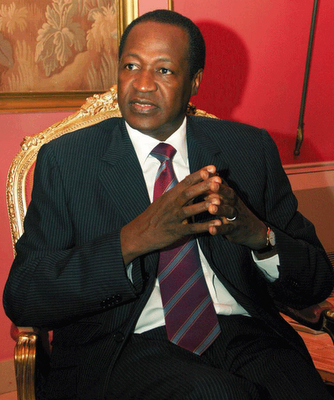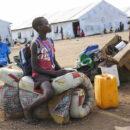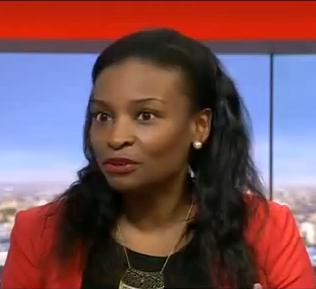Burkina Faso: Compaoré’s Continuing Will to Power – By Michael Keating and Coulibaly Nadoun

One of the remarkable facts of history that re-emerged during the trial of Charles Taylor was the key role that Burkinabé President Blaise Compaoré played in the bloody wars of Sierra Leone and Liberia in the 1990s. When Taylor first landed in Burkina Faso, prior to his invasion of Liberia in 1989, Compaoré was a disgruntled army officer seeking to oust from power his one-time friend turned bitter rival, the populist President Thomas Sankara.
Although unproven, some rumours suggest that it was a member of Taylor’s own clique who killed Sankara in order to bring Compaoré to the presidency and gain his support for the upcoming campaign in Liberia. It has also been suggested that it was Compaoré who introduced Taylor to the late Libyan leader Colonel Muammar Qhadafi, from whom Taylor received weapons and logistical support in exchange for future profits from the expected plundering of Liberia’s diamond and timber trade.
Furthermore, according to Richard Moncrieff then of the International Crisis Group (now the FCO), “Burkina Faso is landlocked and poor so he [Compaoré] had an eye for making money…by diamonds and so on.” The match with Taylor and his associates was, by all accounts, a win-win for everyone involved, except the millions who suffered the decade of violence that followed.
In power for almost twenty-five years, Compaoré at 61 is an old man of African politics. Re-elected several times in contests that were barely legitimate and hardly transparent, it is possible that he will retire from politics when his current term ends in 2015. His political supporters are however encouraging him to stay on through a revision of the term-limit statutes of the Burkinabé constitution. Looking elsewhere around the world where such statute fidgetings have taken place it is likely that many Burkinabé who feel Beau Blaise (as he is known) has been in power long enough will take to the streets in protest if he announces he wants to stay on. It’s anyone’s call how the army will react.
Despite criticism of his electoral tactics, there are certain facts about Burkina Faso that are hard to dispute. Namely, it is peaceful and developing faster than some of its neighbours (Mali and Niger, for example). However, as recently as 2011 the country was rocked by student protests and a near mutiny by the army. The culprit being a mixture of corruption, high prices and a political culture of impunity – all familiar motivators of civil unrest in developing countries.
Since the riots, the government has taken steps to undermine discontent by raising wages of civil servants and subsidizing food prices for the population at large. In an effort to hedge his bets on the future, Compaoré also pushed through legislation granting amnesty from prosecution for all former heads of state. Although actions like these raise eyebrows in foreign capitals, there is also no doubt that Compaoré’s personal involvement in resolving the Ivorian crisis, and his attempts at mediation in Mali, are much appreciated.
In some sense, the sheer length of his term in office has conferred legitimacy on Compaoré, even though a critical evaluation of his actions might suggest otherwise. The poverty needle for the majority of citizens has not budged over the decades of his rule. Many critical social institutions, most importantly the universities, are languishing for lack of government support. Foreign investors outside the natural resource sector are few and far between. Educated young people are looking to emigrate abroad.
Nevertheless, the feeling one gets in Oaugadougou is different from neighbouring capitals. The roads are wide and well maintained and even have a special lane for scooters, which makes driving reasonable and less like an anarchic video game. The media seems to be diverse, robust and relatively free, although it is unlikely that severe criticism of Compaoré would be tolerated.
The question is whether these social benefits are sufficient to keep Burkina Faso stable should Compaoré go, and perhaps more importantly, should he stay. His handling of the chaos of 2011 suggests a deft touch when it comes to satisfying all of the country’s political and social constituencies. However, with a measure of social peace at hand, several local observers note that real political reform has regressed in recent months making further disturbances very likely. Local political opponents suggest that Blaise’s plunge into international diplomacy is simply a tactic to divert attention away from domestic problems. He is assisted in this campaign to win international approval by his wife Chantal, who has taken a laudable role in the fight against female genital mutilation (FGM).
To call Blaise Compaoré a benign dictator seems a fair description, even if he claims legitimacy through contested elections. Because Burkina Faso has generally lacked geopolitical significance, foreign powers – especially former colonial master France – have turned a blind eye on the country’s democratic deficits. The murder of Thomas Sankara and the ultra-violence of the wars in Sierra Leone and Liberia are a distant memory as the region faces new challenges in the form of radical Islam, climate change, endemic poverty and potential famine.
If Compaoré manages to retain power after 2015, if he becomes a key player in cementing the peace in Cote d’Ivoire and engineering one in Mali and if he fosters further development in Burkina Faso then he may never need to invoke his amnesty clause in the constitution. He will certainly never achieve the stature of a Mandela, but he can make a positive mark on the history of West Africa in the 21st Century. If, however, the energy of the Arab spring heads south and leaders like Compaoré are forced to yield to the legitimate democratic aspirations of the people then, like Mubarak, Assad and his old friend Qhadafi he may find himself on the wrong end of a very demanding stick.
Why leaders feel they must retain power beyond what their constitution calls for is one of the perennial issues in politics. We can chalk it up to narcissism, to the need to maintain patronage networks, to a fear of prosecution, or simply to the will to power – perhaps the most potent stimulant of all.
Burkina Faso has much to be proud of as a society, but it also has a long way to go in providing a decent life for the majority of its citizens. President Compaoré still has time in his political life to lead by example and provide a blueprint for development for the region. Whether his past demons and his desire to dominate the limelight will let him is another matter.
Michael Keating is a Lecturer in International Relations at the University of Massachusetts Boston. He can be reached at [email protected]. He has just completed a month long trip through Niger, Burkina Faso and Cote d’Ivoire.
Coulibaly Nadoun is a Burkinabé journalist based in Ouagadougu.







This comment also appeared on my blog: http://www.peter-doerrie.de/2012/08/09/the-roads-are-wide-and-well-maintained/
I was incredibly happy to see that the African Arguments blog of the Royal African Society published an article on Burkina Faso today. Well researched analysis of political affairs here are few and far between and usually, African Arguments is the place to go for this kind of stuff.
The piece titled “Compaoré’s Continuing Will to Power“, by Michael Keating and Coulibaly Nadoun, showed some initial promise, tackling the dark past of President Compaoré’s 25 year reign over Burkina and delving into the question, if he has the will to push this reign over the constitutional term limit of the 2015 election. But then the article unfortunately degrades quite a bit, with little critical analysis regarding Compaoré’s legacy as a leader of the Burkinabé state and his current involvement in regional politics.
Let’s start with his frantic efforts at mediating in every conflict in the wider region, which are internationally “much appreciated†as Keating and Nadoun assure us. Clearly, the region has plenty of those and everybody would be happy to have a skilled and capable mediator bringing the parties to a table and negotiating a peaceful solution. The post-election violence in Côte d’Ivoire and the current rebellion in North Mali come to mind. But while Compaoré has jumped at every opportunity to involve himself with these conflicts, his success must be questioned. With regard to Côte d’Ivoire, he is hardly a neutral power, having organized financial and military support for the northern Rebels, as well as allowing them to recruit fighters in Burkina, basically helping to “resolve†a conflict he helped to create. In Mali, he has been involved in negotiating a settlement for the 2007-09 Tuareg rebellion. This basically followed the pattern of all settlements in this conflict before it: money and army positions for the fighters, hollow promises of political participation and development for the population. Needless to say that the “peace†held only a good two years.
I would argue that President Compaoré follows one objective in these negotiations and one only: To secure a maximum of regional political cloud, so as nobody (western donors included) gets funny ideas like supporting the domestic burkinabé opposition. He has without doubt succeeded in this, though I fail to see how the resulting length of his term – bought through marginalizing all local opposition and keeping outside intervention at bay – “in some sense confers legitimacy†on him, like Keating and Nadoun would have it.
Which brings us to the question of Compaoré’s legacy of bringing development/wealth/health/enter-your-favourite-indicator-here to his people. Keating and Nadoun concede that “the poverty needle for the majority of citizens has not budged†during his 25 years in office, but they argue that the feeling of Ouagadougou (the capital) “is different from neighboring capitals†and that “the streets are wide and well maintainedâ€, building the argument up to the crescendo that Compaoré deserves to be called a “benign†dictator.
Regarding the streets: Wide they are, but you may judge the typical level of maintenance on the picture on the top of this article (on my blog). I took this ten minutes ago, stepping out of my front door. The house of the local mayor is two houses down on the same street. Every street in Ouagadougou looks more or less similar, safe the main arteries and some streets in the city center (but not even there all are paved). Those which are paved have often been patched over many times, making for a bumpy ride on a Scooter, which becomes downright dangerous due to the many ginourmos potholes.
I honestly fail to see how you would have something positive to say about President Compaoré in the department of development. After 25 years in office, only every fifth Burkinabé is literate. After 25 years in office, almost 40% of all children under the age of five are underweight. In 2015, when his current term ends, Burkina Faso will likely not reach a single Millenium development goal.
Meanwhile, years of subtle but deadly (ask the children of murdered journalist Norbert Zongo) suppression has left Burkina without a political opposition to speak of. The government is filled with relatives and cronies and the army is so undisciplined and incapable, that nobody even mentioned them when it was discussed who should provide the troops for an intervention in Mali (this is probably on purpose, as Compaoré knows the danger of a well organized army, having used one in two coup d’États himself).
The only possible nice thing to say about Blaise Compaoré is that he has kept his country from the all-out civil wars that some neighboring countries descended into. If that is really enough to describe an African statesman as reasonably successful in an article on a respected blog on African affairs, (West) Africa is in a sorry state indeed.
I could go on about how the article left out some important aspects of the coming 2015 power struggle in Burkina, like the role of Blaise Compaoré’s brother as a possible successor. But I have already written enough. If you are interested, I will cover this in a future post on my blog (or maybe an article for African Arguments? 😉
I agree with the previous comment that the article lacks critical analysis of the Compaoré regime. While I am not a political scientist, only a social anthropologist who has been doing research in Burkina Faso for 12 years now, I can honestly say this is a naive piece of writing that doesn’t deserve to be published on a respectable website like this.
Compaoré regime is not a benign one. Among other things, his police shot real bullets at students who protested against impossible living conditions on Ouagadougou university campus a couple years ago. And in a solution, they simply shut down the university as so many times before. The Norbert Zongo affair speaks for itself. And there are others, too many to list here.
The blurb about one of the authors (who I am sure must be an expert on sth, but clearly not on Burkina Faso) of the article speaks for itself- the author has “just completed a month long trip through Niger, Burkina Faso and Cote d’Ivoire” (sic!)- Clearly he traveled only on the wide and well maintained roads (possibly in the safety of a nice air-conditioned vehicle). Nadoun Coulibaly works for one of the main journals in the country. Considering what happened to Norbert Zongo (who died in very strange circumstances, after continuously writing about the fishy affairs of the country’s president), it may be part of his to tactics to write well about the president, who is powerful and not all that benign.
Thanks for your comments Peter although I don’t think we are saying different things if you read what Nadoun and I have actually written. When I use the term legitimacy it means in the eyes of the international community, which is certainly a fact. Just read what President Sirleaf of Liberia had to say about him in a recent speech (this after his role in the Liberian civil war)…we go on the call him a dictator which does not necessarily bring to mind democratic legitimacy.